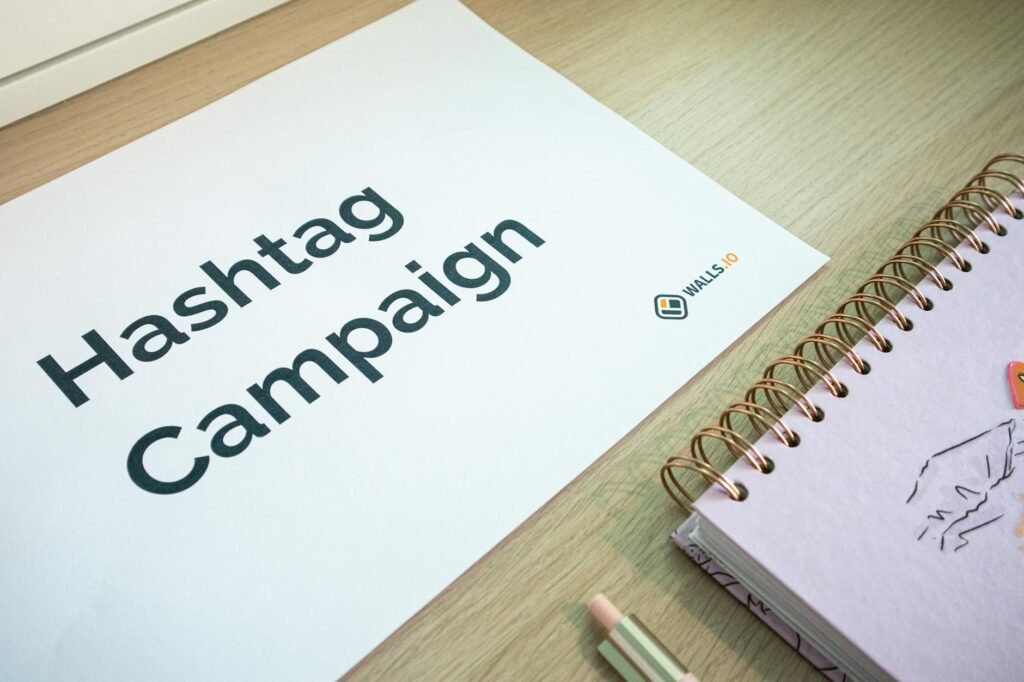There is no single answer to this question. Most individuals whom I surveyed for this project, said that SEO was not dead.
But, the SEO game, which most of us are so acquainted with, has actually changed. And so, maybe it could be said that yeah, SEO is dead in the way that we all perceived it to be.
But, it’s a really complicated debate. So, read on – there’s a lot to learn here!
When I first started blogging in 2015 I scoured the internet for tactical SEO tips that I could implement and rank higher in Google. These tips ranged from commenting on other blogs to sending guest post requests in an ordeal to get featured on other blogs.
But, I soon realised something.
All these techniques are relics of the past. Most SEO experts nowadays ask you to focus on networking and branding, then on building links for the sake of ranking on Google’s page #1.
I made a lot of inferences over the years which I will share later on in this post but first something else –
I read about marketing a lot. And sometime in the recent past, soon after 2019 happened, most blogs were full of “Is SEO dead”, “Is SEO necessary” and “Does SEO Matter in 2019” kind of posts.
So I reached out to a ton of SEO experts via HARO to ask them one simple question –
What their opinion was on whether SEO is dead or not.
Here’s what I found.
If you are short in time, check out this video-
#1. SEO is evolving; not dead
Andrew Ruditser, lead Lead Technology Coordinator for MAXBURST, Inc feels that SEO is not dead but is evolving so as to provide even more relevant answers to search queries. As the internet continues to evolve and bring new developments, people tend to think that SEO has died.
But this is not the case.
While SEO trends have changed A LOT due to these developments, as long as Google and other search engines exist, it is important that you are still ranking in them. Although new technology may change the way we interact with one another, these search engines will always keep up and remain a factor.
This just means that you must evolve with the internet. Tracking your SEO strategies will help you do so.
This will help you see what SEO strategies you used in the past have died out and what new ones you must use instead. As long as the world continues to communicate through the internet and these search engines, SEO will always play a huge factor in making sure you remain on top of their rankings and ahead of your competitors.
#2. SEO is very much dominant in the present Internet scenario
According to Jitesh Keswani, CEO of e-Intelligence, SEO is inherently valuable and is not dying shortly.

If done in the right manner with the right SEO tools, SEO can help a business reveal the bright road ahead for organic traffic and potential customers.
- 5 Fundamental PPC Rules that can Make or Break Your PPC Ad Campaign
- 32 Email List Building Tactics For New Websites
#3. SEO is changing more into a marketing channel
According to Sam Hurley, Co-Founder of NOVOS, since the last four to five years, they have observed that SEO is shifting more into a marketing channel which requires full teams to assist on one website.
The shift has occurred in line with the fact the way we view SEO has changed. We now see SEO through the lens of the user experience rather than Google. In the same way, a UX Specialist would run tests to gather data and gather information in order to make recommendations.
#4. You still need to Optimise for Search Engines in order to rank your content
True to what Andrew Hansen from https://digitalworth.com/ says, Google is not good enough yet to magically find and rank your good quality content without you having to do any SEO.
Even though Google stresses on good quality content and rewards high-quality, thorough content, but it still isn’t enough to rank your site.
I consider good quality content to be the #1 most important on-page SEO factor. And, since Google did mention that quality content is one of its two most important ranking factor, I’d bet that the other one is building links.
And, what’s more SEO than building backlinks to your blog or website!?
Handpicked Resources:
- Why is Link-Building Important?
- What is Domain Authority?
- How to Actually Build Links: All the Tactics that There Are
#5. Spammy SEO is Dead but Not SEO
Sean Dudayev, Founder of Frootful Marketing considers that most marketers that spread the message of SEO being dead have just not been able to adopt the modern approach to SEO.
Today, its a lot harder to do SEO and is a much more laborious process than it used to be.
However, if done right, it provides the best ROI of any marketing effort out there.
In 2019 SEO is all about quality over quantity.
It boils down to two things: high-quality content and high-quality links, which should be located within high-quality content.
#6. SEO comes after High-Quality Content
If you actually want your website to rank for particular keywords, create an outstanding article and then focus on SEO.
While, quality content without promotion won’t bring you any traffic, similarly, extreme promotion of low-quality content is not going to get you anywhere either.
Nachum Balofsky, the In-House SEO & Content Strategist for 1SEO feels that as Google’s algorithms become more sophisticated, high-quality content that is useful to the public is becoming increasingly vital.
The days are gone when you can just stuff your website with keywords and expect your site to rank for your desired keywords.
- Here’s How You Can Take Your Blog Content to the Next Level
#7. SEO is even more important than ever
I love the answer provided by Simon Ensor, the Managing Director of Yellowball. Here’s his quote-
SEO has been heralded as dead for years now. In fact, SEO is far from dead. The quantity of searches is increasing year on year, our usage of search is entering multiple arenas (e.g voice search) and traffic volumes for SEO related searches is also on the rise.
The important point to take into account is that Google rarely changes the goal posts. There are nuances in terms of strategy but in the end Google is a business and is looking to provide the most relevant and valuable result for each search.
Google’s ability to understand the underlying intent of searches through updates such as Rankbrain have certainly helped its ability to filter content, but this doesn’t mean that SEO is dead.
In fact, with the amount of content being produced on a daily basis, SEO strategy and optimisation has never been more important. For example, we have a client within the beauty space that created content that truly resonated with their audience.
This was great for social, email and for users already browsing the site. It even attracted traffic directly from search. However, the articles had not been created with specific searchers in mind and therefore had not been designed to provide a particular solution.
Through minor amends to content, applying more structure to the site and also items such as schema mark up, we managed to secure multiple featured snippets which increased CTR (and therefore traffic) by over 300%.
The core content and message had not necessarily changed. We had simply aligned it with the SEO strategy.
Furthermore, SEO is not just about content. There are no silver bullets in search. As such, whilst Google’s ability to read content continues to grow in complexity, it still means that other areas such as technical SEO and link building need to have expert application.
In fact, Quincy Smith, the Head of SEO and Content at Ampjar, feels the same way. According to her, SEO is both more valuable and more complicated than ever, while the basics of SEO are still the same – that is, create awesome content that solves the searchers’ intent, observe on page and off page best practices, and make sure you have a plan for when you start getting traffic.
The last part is called conversion – that is, you need to have a plan to convert your audience into recurring audience or even better – customers! Although the last part is a bit complex, you have to consider SEO as a part of your marketing strategy as opposed to the crux of it – your channels need to work in harmony with one another and organic traffic should still play a huge part.
#8. SEO is now less technical and offers more of a qualitative approach
According to Danilo Godoy of Search Evaluator Partners since search engine optimization is not a recipe but rather a set of concepts that evolves along with the internet and search engines, without professional advice site owners may incur the risk of following outdated techniques that may even hurt their position in the rankings.
His understanding is that as most platforms are now what they claim “optimized for SEO”, the optimization efforts are getting geared to an approach that is not as technical as it used to be in the past.
Instead, webmasters and content creators are now more concerned with a qualitative approach that is focused more on the content than on the technicalities.
This idea is aligned with the recent post on Google’s official Webmaster Central Blog.
On that article, Google states: “we understand those who do less well after a core update change may still feel they need to do something. We suggest focusing on ensuring you’re offering the best content you can. That’s what our algorithms seek to reward”
#9. Branding is Key in SEO
Google had issued a statement that the solution to SEO was in “brands”. I believe that they meant that if your site has a good branding, it is expected to publish more quality content and thus it will be valued more in the eyes of Google. However, let’s come back to this in a later section in this article – “Why Branding Matters More Than SEO”.
- Related Read: How to Brand Yourself Using HARO
- How Commenting on other Blogs Can Help You Build Your Brand
#10. SEO is a process of constantly improving websites
According to Irena Zobniów, Co-Founder of Insightland.org, SEO is not only about creating content optimized for key phrases or link building, but is a constant process where you keep on trying to improve your websites, perform activities that stick to the newest search engine guidelines in order to achieve high positions and to generate organic traffic.
Shakun Bansal from Mettl has a similar view on SEO. He feels that SEO is not just about inserting keywords in content that would go dead or out of fashion, because Google algorithms are improving each day. SEO is about finding out what probably could be the changes that Google had done to its algorithms and how to prepare content accordingly so that the website’s ranking isn’t affected.
SEO optimizes the website according to search engine algorithms so that your website (if it has content worth ranking) ranks on the top organic searches in SERP rankings. Some or the other kind of algorithms will remain in the bigger picture of Google’s ranking and SEO will take precedence to understand them. Nobody knows how these algorithms work and a major part of ranking depends on continually researching and understanding the practices that work best for traffic and audience find you.
While algorithms can keep changing, it won’t go. There’s been a shift in page rankings from keyword-filled content to longer formats of content that provide the best of knowledge and information in one go in an easy to comprehend language.
Also, a lot of emphasis has been on structured content with relevant backlinks from different sources and on-page content backlinks to other related content forming a cluster of topics and subtopics. This is what SEO does- anticipating the changes in Google’s algorithms to adapt organizational strategies accordingly.
#11. No More Tricking Google. SEOs are now Website Optimizers
Michael Russell, Director of Digital Marketing at Ratchet Straps USA considers that Search Engine Optimization as a whole has shifted from the previous attempt of tricking search engines to rank websites higher, to more of a role where SEO’s are now working to become website experience optimizers.
Optimizing website experiences is done through the use of answering customers questions, providing detailed information, as well as cleaning up a lot of the old methods of ranking websites in Google.
As a whole, I don’t believe SEO is dead, rather I firmly believe that SEO that we previously knew it as has shifted over time.
Going forward to 2023 I believe that we will see fewer new SEO’s due to the requirements and endless amount of knowledge that you are needing to know in order to rank has increased.
#12. Technical SEO Matters A Lot
Katherine Rowland, Digital Marketing Executive at YourParkingSpace.co.uk considers that as search engines have evolved, and algorithms have adapted, undoubtedly certain SEO practices have been made redundant, and others have died and been reincarnated in different forms.
One thing that never seems to go out of style is technical SEO. Improving factors like page speed, on-page SEO and keyword optimisation are still very important and will be sure to keep you high on SERP’s.
These strategies provide the biggest SEO gains, and with on average 40% of revenue being captured by organic traffic, they cannot be ignored.
Indeed, Google is dramatically increasing in intelligence year on year, but that doesn’t make the need to optimize SEO any less important, it just means us as marketers must evolve our practices just as Google does.
#13. Personalisation, Voice and Video are the New SEO considerations
Avinash Chandra, founder and CEO, BrandLoom says –
“Where we stand now, SEO is very much alive, and will continue to be so in the near future. However, with the rise of smart applications and gadgets, SEO itself is changing. Personalization is another important aspect while doing SEO now.
While traditional Google searches operate differently, with IoT, search results are getting more personalized and the machines give priority to results that correspond to the user’s prior preferences.
Our trends show that priority is going to be on voice search and video search.
This means importance and demand of voice and video SEO is on the rise. Brands should pay attention to keywords used for voice searches, and should optimize their websites so that they load faster, because voice search assistants go for search results that load the fastest.
A SERP-only focus on data will become irrelevant because with IoT and voice search works differently with keywords. Similarly, more people are watching videos than reading text, so it is important that brands do video SEO.
A good example of the importance of video SEO is an US automotive brand we worked with. With a popular cricketer as their brand spokesperson, we conducted extensive ad campaigns on social media platforms, and also did video SEO. Their video campaign showed the maximum level of engagement, and was a big success.
They actually saw a 25% increase in sales following the campaign. Video SEO, when done right, can be extremely effective.”
#14. Why Branding Matters More Than SEO?
Slisha Kankariya of withclarity.com feels that a good SEO presence is established by educating your customer about your product and the thought and process of crafting it.

It’s also all about establishing yourself as a thought leader within the space and getting ranked accordingly. The more people see you, the more you will be trusted as a person or brand capable of providing a valid source of information and ultimately when you try to make any sale with them, they will be more warm to you.
Try to anticipate questions people will have throughout the funnel so that you can get in front of them and cultivate your brand awareness at all points of their journey before they purchase from you. This also helps in demand-generation for your business.
They feel that this is the best way to establish a presence, credibility and organically get people to discover their products and services.
Challenges to this are always heavy competition in the marketplace and contenders who have more money and man-power than you.
Online reputation management is all about establishing a profile for your business online and allowing customers and reviewers of the company to leave their honest feedback in a public setting.
This is open, honest advice with testimonials that help other potential customers gauge whether they would like to work with you.
Meanwhile a good SEO presence is established by educating your customer about your product and the thought and process of crafting it.
It’s also all about establishing yourself as a thought leader within the space and getting ranked accordingly. The more people see you, the more you will build trust and this can in-turn help bring returns to your SEO efforts.
In fact, Slisha has seen huge growth and payoff by implementing good SEO practices and it really helps her to establish a presence online and get people excited about her brand and offering.
#15. Why Networking Holds the Key to SEO Now?

As you can see from above, SEO is no longer how it used to be, wherein you got your post linked from a thousand and one unrelated websites. Now, it’s not just the number of links that count but also the quality of the links, the latter being the more influential.
Recommended Reads:
Links from high quality pages can take your website to the next level and significantly boost your website’s rankings.
But, it is not as easy to get links from these websites as it was in 2000s. Editors and website owners are ever more cautious of linking out to spammy and shady websites as it can affect their own rankings. Although Google wants you to link out to other relevant resources, the fact of the matter is gaining links is much tougher than it used to be.
As such, writing great quality articles and asking people to link to it, aka the Skyscraper technique won’t work if you are new in your niche. What worked for Brian Dean, an SEO expert has failed for others in numerous other tests.
So, why was Brian so successful, when others failed?
- Branding. And lots of it. Heck, he has a Forbes article dedicated to him!
- Writing articles that address pain points of his audience.
- And, this is the most important – networking.
If you know people in and around your niche, the job of getting links becomes so much more easier.
So, if you are new to SEO or marketing, I would say, first learn the ropes of networking and make relations with important figures in your niche and then work on getting links from them.
In fact, Matthew Woodhart, an SEO expert built an SEO blog generating six figures worth of income without doing any damn SEO…… the irony!
How did he do it?
He has an article on it titled the zero link building case study, but to sum it up in short, he created some really high-quality content and shared it up everywhere he could including relevant forums and blog comments as well as social-media.
- Related Post: Here’s How You Can Exploit the Most Underrated SEO-Hack, that is Commenting on Other Blogs in Your Niche
He reached out to other influential bloggers and asked them to share and not link – and this is key – because if the other blogger doesn’t know you and you ask them to link to your blog post, they just won’t.
It doesn’t matter how good your blog post is; if you are new to the industry and nobody knows you, plus your blog’s new, the person on the receiving end of the email won’t have the patience to go through your entire blog article to find if it’s worth linking to or not!
So, how do you network with others in your niche. I’ll get to that in the next post very soon!
And, if you liked this article, make sure to share it and drop a comment too.
Need help with your business growth? Send us an email at adhip[at]winsavvy.com or book a meeting for free here!





















